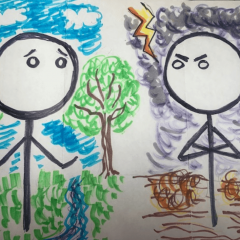humility
The Name Of God Is Mercy
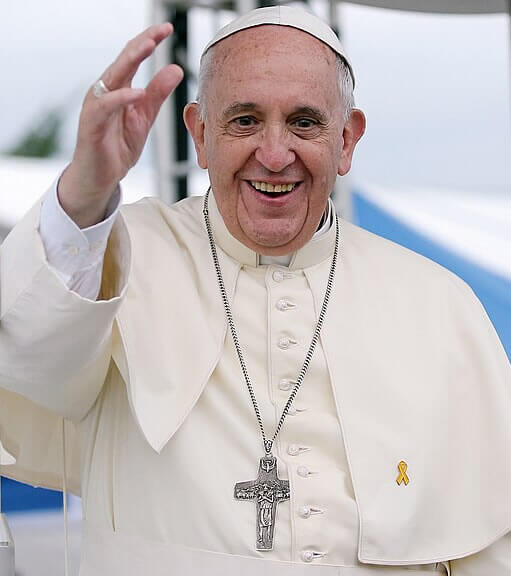
2nd Sunday Of Easter – 2025
Deacon Tom Vert
Preached: April 27, 2025
“The Name of God is Mercy”
In 2014 a book of conversations with Pope Francis was published with this title, and I think, on this Divine Mercy Sunday it is very appropriate to contemplate the Pope’s impact on our Church and on our lives with this theme of mercy.
If we are going to do this, we should first define – what is mercy? Mercy is defined as “giving undeserved kindness or forgiveness to those who may not deserve it.” In other words, to love even more than normal and to share that love with those who we may not even want to!
Mercy is integral to the character of God and the message of the Gospel. It is through God's mercy that humanity is offered salvation, by sending His Son into the world as told in the letter to Titus, “He saved us, not by the righteous deeds we had done, but according to His mercy.”
Pope Francis, preached about God’s mercy in his first homily as a Pope saying, “the message of Jesus is mercy… It is the core of the gospel message.” He continued to preach about mercy throughout his life and actions for the past 12 years. In his mercy and love, he went and taught us to love those on the “peripheries” of life…the homeless, the poor, the migrants, the sick, those in prison and those persecuted.
He traveled around the world to some of the smallest countries with almost no Catholics or persecuted Catholics like Mongolia, Iraq, Timor and not the big power centers. He reached out to those persecuted because of their sexuality saying, “If they accept the Lord, and have good will, who am I to judge?”
His first papal trip was not to Paris or London, but to the shores of the small island of Lampedusa to meet with the African migrants dying as they try to make it to freedom. He has opened the doors wider than ever before to include women in the highest ranks of the church, with Sister Petrini now the president of Vatican City, women voting during the most recent Synod, and even in our own country, Dr. Josie Lombardi as Dean of Studies at St. Augustine Seminary in Toronto.
His vision for the Church was not one of exclusivity but inclusive of all and stated “there is room for everyone in the Church…he embraces us all…. he never closes the door…God loves you!”
This love for people did not stop at Catholics, but he reached out to fellow Christians as well as people of other faiths. In his letter named – Fratelli Tutti or “All brothers and sisters” he argued that fraternal
(brotherly, sisterly) love for all people is the only way to change the world. We are called to dialogue and work with Muslims, Hindus, Buddhists and others to have global peace, help solve world poverty and to care for our global environment. Fighting and competing with others, he told us, is not the solution to theses issues…but instead understanding and love of neighbour.
Pope Francis’ legacy is not in academic documents but the humility of a servant, a shepherd, who smells like his sheep.
Pope Francis was above all a pastor and pastoral. Carmela and I had the opportunity at a Wednesday papal audience in 2015 to meet the Holy Father on our 25th wedding anniversary and he gave us his papal blessing (probably why Carmela can still put up with me!) Carmela had a conversation with him in Italian, and we may not remember all the words, but we remember how it felt like we met with our grandfather and not the Holy Roman Pontiff. His eyes, his words, his smile and his gentleness were memories that will last forever.
Pope Francis gave us an example of humility each day as he paid his hotel bill in person the day after he was elected pope, he wore his old black shoes instead of the traditional papal red, he always carried his own briefcase, and for 12 years stayed in Vatican guesthouse and not papal apartments.
He taught us about mercy and love saying that when the father hugs the prodigal son “this is the love of God. This is his overabundant mercy.”
Pope Francis gave us even more examples of acts of mercy as he provided showers, haircuts, food/drink to the homeless in Rome and allowed them to sleep in tents near St. Peter’s square. He washed the feet of prisoners including women, and Muslims, and always visited hospitals and orphanages…truly he led more by example more than words.
So, we may ask ourselves, how can we honor this wonderful Pope? How would he want us to continue his legacy? I think he would say that since God is merciful, then we are called as followers of Christ,
to be merciful also.
We are to enact the seven Corporal acts of mercy: to feed the hungry, to give drink to the thirsty, provide clothes to the poor, house the poor, visit the sick and the imprisoned. We need to follow the gospel message “Whatever you did for the least of these brothers and sisters of mine, you did it for me.”
Pope Francis challenges us for faith in action saying that mercy and forgiveness “must not remain beautiful words but must be realized in daily life.” And “If we Catholics were 10 times bolder and more creative in our practice of mercy than we are right now, how might things be different?”
Pope Francis was truly a gift to the Church, and a gift to us personally, so this week, let us honor him by thinking about what his focus was “The Name of God is Mercy”.
Whose Feet Are You Washing?
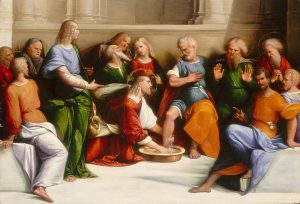
Maundy Thursday
Fr. Mark Gatto
Preached: April 17, 2025
When I studied in Rome many years ago, I had the opportunity to attend many solemn celebrations at St. Peter’s Basilica and the Square. Some with thousands of people, some with the Pope, with beautiful music. But, I have to say that the celebrations of the Eucharist in which I was most moved and felt that I encountered J esus most fully were elsewhere.
In particular, I remember going to visit Sicily for a week with some of the other priests studying with me. We stayed in Palermo in a poor quarter of the city. The nearby parish was taken care of by Salesian priests. They took care of a refugee centre at their property where many refugees would stay until they were able to get settled. Most of them had come up from Africa. But, the big impact for me was the Mass they had each weekend that was just for the children in that quarter. We concelebrated with the priest there with this group of children, some probably were orphans, others with very poor homes. In that Mass, I really experienced Jesus who we see getting down on the ground and washing the feet of the Apostles.
In John’s Gospel, at the Last Supper, Jesus gets down and washes the feet of the Apostles. This scandalizes Peter. Jesus was the teacher, he was the head. He should be served not serve. Here Jesus gives a model for all leaders, all people in positions of authority, all parents, all priests through the ages. The call to serve, not be served.
When we look at our world today, in particular, when we see the political leaders in our world, we see something very different. We need this model of humble service in our politicians, in our leaders, in our bishops and priests, in our parents. Not to look at what is in it for me, but in what way can I serve the needs of the people.
Whose feet are you washing? Perhaps your elderly parents, your young children or adult children going through difficult times, a friend in need?
The Mass of the Lord’s Supper on Holy Thursday is a time when the church reflects on these two mysteries and gifts. The Holy Eucharist and the Priesthood. Both are meant to be models of humble service. Both are meant to be models of self-giving love. We do not come to the Eucharist to be entertained or to have nice feelings. We come here to learn to love as Jesus loved. We come here to learn to become humble servants in our world.
It is perhaps all summed up simply in the words of Consecration. “This is my body given up for you.” These are the words each married person is to express to their spouse, these are the words each priest needs to make his own. These are the words that each of us Christians need to follow in our lives. “This is my body given up for you.”
Go home from here and reflect on that question: Whose feet are you washing?
Climb Down The Ladder
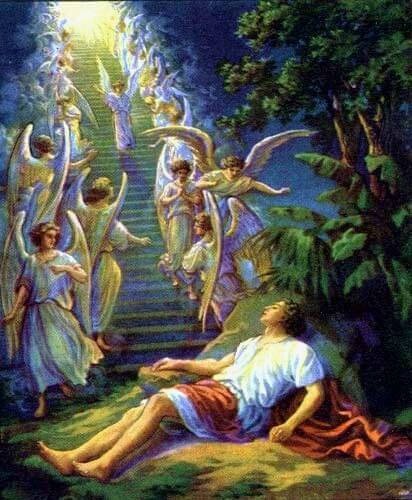
29th Sunday Ordinary Time
Fr. Ed Hampson
Preached: October 20, 2024
Election fever & decisions about who governs us and how are in the air. Our American neighbours go to the polls on Tuesday November 5th this year; we’ll do the same which could be anytime before next October, so we’re going to be hearing a lot about politics & winning. …. Elections are all about people trying to get elected, trying to win in order to be our leaders. It’s about gaining position, power, & influence… & sometimes.. sometimes.. a valuing of the greater good & even a desire to serve… .. sometimes.
What is on display for us in all of this is “climbing the ladder,” reaching up, higher & higher, rung by rung, gaining more ground, more influence, more recognition, leaving others behind ….. better & better, more & more. Along the way.. good things can happen; I thought, for instance, that Kamala Harris’ acceptance speech on Aug. 22nd for the Democratic nomination for the office of President was superb and, I hope, inspiring for some of my American relatives… In the end, however, our governments are based on winning & losing.. & on the temporary popularity of election fervour. … But ‘climbing the ladder’ isn’t just limited to politics. …… We even have games like “Snakes & Ladders” where you climb the ladder to get higher & higher & you try not to land on a snake where you’ll slide down.. sometimes quite a long way down.
The gospel today opens with James & John asking Jesus for something. We presume they’re adults at this point, but they sound a lot more like children: “promise me?” ® and then “we want you to….” ® They wanted to jump the rungs of the ladder & sail all the way to the top.. to sit one on Jesus right & the other on Jesus left in his glory. Jesus enters the conversation they’re trying to initiate. He asks them if they’re able to drink the cup he drinks or be baptized with the baptism he is baptized with… references to the costs & the suffering that are part of the road ahead… costs that are inevitably part of the long term commitment of being Jesus’ disciples… which they clearly hadn’t considered.
To all of this Jesus offers a kind of ‘course correction’ because (a) what they’re asking for belongs to God’s greater purpose & plan, & it’s not the sort of thing to be granted in response to a childish whim … but (b) even their asking of this favour is ‘off;’ because it’s not what Jesus is about & it’s not how the Kingdom of God works. ®
In the Bible, in Genesis 28, Jacob dreams of a “ladder” connecting heaven & earth, on which angels are ascending & descending… & it’s understood to be a connection between heaven & earth. … But for Jesus, his response to James & John’s request, turns their whole image of the ladder upside down. Instead of climbing the ladder to privilege & power… pushing oneself forward into ‘leadership’ or jumping the queue to secure a superior position Jesus tells them that the ladder they are concerning themselves with so much is not for climbing up. It’s for climbing down… down.. to a place of service, in their time like a slave.
Leadership in God’s world.. God’s kingdom.. God’s way of doing things.. can only be expressed in ‘otherness,’ service, loving service .. to others. For Jesus, when we encounter a ladder in our lives… as James & John thought they had…. it’s there for climbing down ….. away from our own position or influence or prestige down to where we can be present in places that need new life. But Jesus’ ‘course correction’ is not what we expect to do in life, is it? It’s not how we’ve been socialized. What Jesus is saying is counter cultural.
So the question for us is “how are we to live this?” … Jesus had talked about this in other places in the gospels. Like when he said “those who exalt themselves will be humbled, & those who humble themselves will be exalted” (Lk.14:11 & 18: 14) and “when someone invites you to a wedding feast do not take the place of honour, but when you are invited, take the lowest seat,” or when you give a luncheon or dinner “invite the poor, the crippled, the lame, the blind, and you will be blessed. Although they cannot repay you, you will be repaid at the resurrection of the righteous.” Climb down to a different place where other things may be possible for other people… a different place… where even our own expectations can be changed… become different.
There’s an ancient hymn I love very much. I turn to it when I know I need a course correction.. or when I need to change my perspective on something that I have coming up that I have to deal with. I usually repeat it a few times in prayer. And what I’ve found is that if I have a conference or meeting or a clergy seminar or something to deal with that has ‘small scale political overtones’ … which I dislike & which I can sometimes become cynical about.. the words of this hymn somehow let me find the freedom I need to lower my expectations & be okay with that. And whenever I’ve done that, climbed down in that way… I’ve been able to go to the meeting or seminar or conference and actually get something good out of it… & I’ve been surprised.. & grateful. That hymn is called the ‘kenosis’ hymn. We know that our 1st & 2nd generation ancestors in the Christian faith sang this hymn because it’s words were etched into the walls of the catacombs with pictographs around them of people singing… & those very words are recorded in Philippians 2: 5-11.
The musical score for this hymn has long since been lost, but the words. the words.. we have: “Have this mind amongst yourselves which you have in Christ Jesus, who ‘though he was in the form of God, did not count equality with God as something to be grasped, but emptied himself, taking the form of a servant, being born in human likeness. And being found in human form he humbled himself and became obedient unto death, even death on a cross. Therefore God has highly exalted him and bestowed on him the name which is above every name, that at the name of Jesus every knee should bow in heaven and on earth and under the earth, and every tongue confess that Jesus is Lord, to the glory of God the Father.”
Jesus’ birth.. God choosing to be born amongst us.. God becoming one of us.. one amongst us.. so that we could see in Him the saving, sacrificial love God has for us… all of that.. was only possible because the Son of God emptied himself to become one of us. He climbed down to a place where He could meet us and be with us and live amongst us and meet us where we actually are. God Himself climbed down to be with us…. not up. So when we do this.. we are actually following the very example God himself has given us. And the thing is, this is something we CAN do. It feels different. It’s a different way of approaching things & being with others. For most of us, including me, it requires an adjustment … a different set of glasses. But it has so many applications in our lives it’s amazing.
In a book called Climbing Down the Ladder: A Journey to a Different Kind of Happy which came out just last year, author Laura Black writes about her own experience ascending the ladder of success & rising to the top ranks of business, all supported by the myth of ‘having it all.’ When she chose to end her career, her descent was marked by a loss of status and an emptiness she had not known. But she delved into her past for clues on moving forward and she discovered a contentment & purpose that led her to uncover a richer and different kind of happy. WE CAN CLIMB DOWN THOSE LADDERS.. IT IS POSSIBLE.
It’s there at our beginning, when we’re in infancy or early childhood. We’re in an utterly dependent position & we’re certainly not in any position to be climbing any ladders on our own… and yet, what did Jesus say? “Whoever humbles himself like this child.. is the greatest in the kingdom of heaven.” (Matt.18)
Throughout our lives we have so many opportunities to climb down that ladder, down, away from the privilege or power or position we sometimes entertain in our innermost sanctum, and move to a place where Christ the servant chooses to live & where we can be His Body, His presence in a world that needs that more than ever.
A faithful catholic who worked in business in Toronto found himself examining his conscience about this time one year . He decided it was time to take stock, reorder his values, put first things first; he decided it was time to do better & be better. So, early one morning he knelt by his bed at home and prayed “Lord, I’m going to be a loving Christian all day, even if it kills me!”
He began his day by rushing to the Go Station to catch a train into Toronto. He hurried through the station with his phone in one hand and an overnight bag in the other, almost too late for his train.. but still trying not to panic. Suddenly he realized the train was about to pull out. He started running toward the train, but just before he got to it he felt his overnight bag hit something. He looked down and saw that he had knocked a box out of a little boy’s hands. The contents of the box … hundreds of pieces of a jigsaw puzzle… spilled out onto the platform. The little boy started to cry. The train started to move. And just as this man started leaning towards the train he remembered his morning prayer. And that was enough to give him the freedom he needed to let go of reaching the train. He set his bags down, smiled at the little boy & said “I’ll pick it up for you son.” He bent down (climbed down,) gathered up all of those jigsaw pieces and put them back in the box. The little boy watched him more & more intently as he was doing that. When the man finished, the little boy spoke to him: “Mister, are you Jesus?” And the man realized that maybe Christ was there in that moment: “The Son of Man came not to be served, but to serve, and to give his life as a ransom for many.” . . . . ..Getting to that place means climbing down.
When we move in that direction, away from our places of favour & privilege & so called self made success & all the assumptions that go with that, we arrive in a place where we can be present with a love that comes from beyond ourselves. There, we are, quite literally, the Body of Christ. This climbing down ladders takes practice, it’s a spiritual exercise that takes ongoing work, but it can be done & we can do it. According to that ancient hymn that is exactly what God did and now, He invites us to do the same. Thanks be to God. Amen.
Feeling Uncomfortable?
31st Sunday Ordinary Time
Fr. Mark Gatto
Preached: November 5, 2023
Are you feeling comfortable right now? I am not speaking about being comfortable in the new pews! After listening to these passages from the Scriptures, especially the words of Jesus in the Gospel, we should probably be feeling uncomfortable. We often think of the Bible as something that brings us comfort, but if we are reading it properly then sometimes it should be something that makes us uncomfortable.
As a priest, the words of Jesus about the Scribes and Pharisees make me uncomfortable. Jesus says, “do not do as they do, for they do not practice what they teach.” “They do all their deeds to be seen by others.” “They love… places of honour at banquets,… to be greeted with respect…”Do these words apply to me as a priest?
Pope Francis has spoken often about the harm to the church of clericalism. What is that? When one sees himself as superior to the people, sees himself as being over them. When he speaks down at the people, putting burdens on others. The priesthood must be rooted in a servant and humble mentality. Jesus says, “the greatest among you will be your servant.” “Whoever humbles himself will be exalted.” This must be the vision of any Catholic priest.
But, these words of Jesus do not apply just to priests today. They should make many of you uncomfortable. It is a vision of authority and leadership. Anyone in a position of authority should be challenged by these words of Jesus.
Who might this apply to? Teachers, parents, Police officers, CEO’s, politicians. Anyone in any position of authority needs to see themselves not as being over others, but as servants. Anyone in any position of authority needs not to desire to be exalted, but rather to serve others with humility.
– Teachers are not over their students, they are servants of their students.
– Parents are not over their children, they are servants of their children.
– Police officers are not over people in the community, they are servants of the people.
– CEO’s are not over the employees in their company, they are servants of the employees.
– Politicians are not over the citizens, they are servants of the citizens.
This Gospel vision of authority is completely different from what we often see in our world.
We are living in a dark moment of history. We see great divisions, we see destructive wars. Whether Russia in Ukraine or now the war in the Middle East, in Israel and Gaza.
In all of these situations, the problem is with the vision of authority. Authority as being over others, power over others, domination of others. Authority that relies on guns, bombs, military spending. Of course, none of this will ever bring true peace.
The only hope for peace is found in the Gospel vision of authority. We need political leadership that embraces a humble, servant leadership. Leaders who do not see themselves over others but as true servants.
We want the Word of God to bring us comfort. But, it is probably more valuable and important when the Word of God make us uncomfortable. Today’s Gospel offers us a vision of authority and leadership rooted in service and humility. It is a vision of authority needed in our world, in our church, in our families, in our communities. Do not desire to be over others, but to serve others.
Praying With Humility
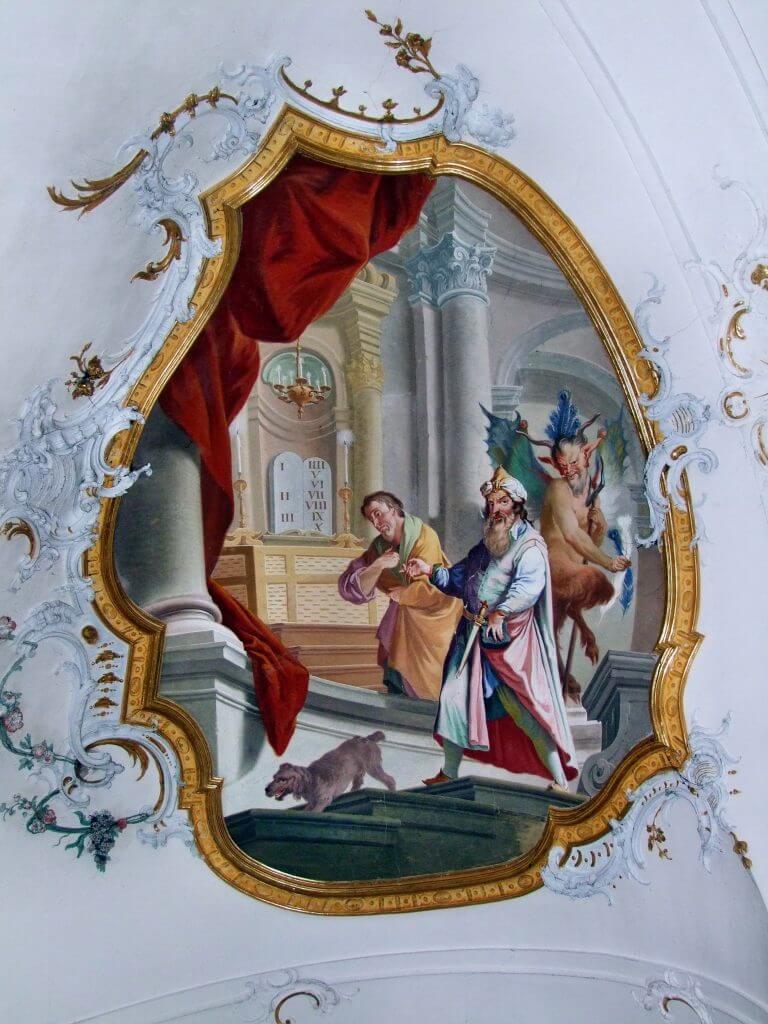
30th Sunday Ordinary Time
Fr. Mark Gatto
Preached: October 23, 2022
There is a story about a monk called Brother Bruno. One night he was at prayer and he was really disturbed by the croaking of a bullfrog. All his attempts to disrespect the sound were unsuccessful so he shouted from his window, “Quiet! I’m at my prayers.”
Now Brother Bruno was a saint so his command was instantly obeyed. Every living creature held its voice so as to create a silence that would be favourable to prayer.
But now another sound intruded on Bruno’s worship – an inner voice that said, “Maybe God is as pleased with the croaking of that frog as with the chanting of your psalms.” “What can please the ears of God in the croak of a frog?” was Bruno’s scornful rejoinder. But the voice refused to give up. “Why would you think God invented the sound?”
Bruno decided to find out why. He leaned out of his window and gave the order, “Sing!” The bullfrog’s measured croaking filled the air to the ludicrous accompaniment of all the frogs in the vicinity. And as Bruno attended to the sound, their voices ceased to jar for he discovered that, if he stopped resisting them, they actually enriched the silence of the night.
With that discovery Bruno’s heart became harmonious with the universe and, for the first time in his life, he understood what it means to pray.
Any true prayer should lead us to unity, with God, with our fellow human beings, with creation, with the entire universe. If I am praying, but separated from my fellow human beings, something is wrong with my prayer. If I am praying, but not one with creation, something is wrong with my prayer.
Jesus describes two men going to pray. One went home justified, the other did not. The pharisee prayed, but in a spirit of superiority, with a lack of humility. In the midst of his prayers, he is looking at other people with contempt, including the tax collector. The tax collector came to prayer in great humility, recognizing himself as a sinner in need of the mercy of God.
Jesus is not fooled by false piety or by superficial prayer.
Jesus is looking for a humble attitude, not judging others, not showing contempt for others.
Our prayer is not about changing the world, not about changing others. Humble prayer is about seeing with the eyes of God, is about feeling with the heart of God.
God loves the universe, sees our fellow human beings with eyes of compassion, with a heart of love.
If I am praying, but I see my fellow human beings with contempt rather than compassion, then there is something wrong with my prayer. If I am praying, but my heart is cold, then there is something wrong with my prayer.
We need to come to God in prayer as the tax collector in the Gospel, “God, be merciful to me, a sinner.” Humble prayer will always leads us to be unity with others, with creation. Humble prayer will help us to see with the eyes of God, feel with the heart of God.
Humble Church, Humble Priests, Humble Catholics
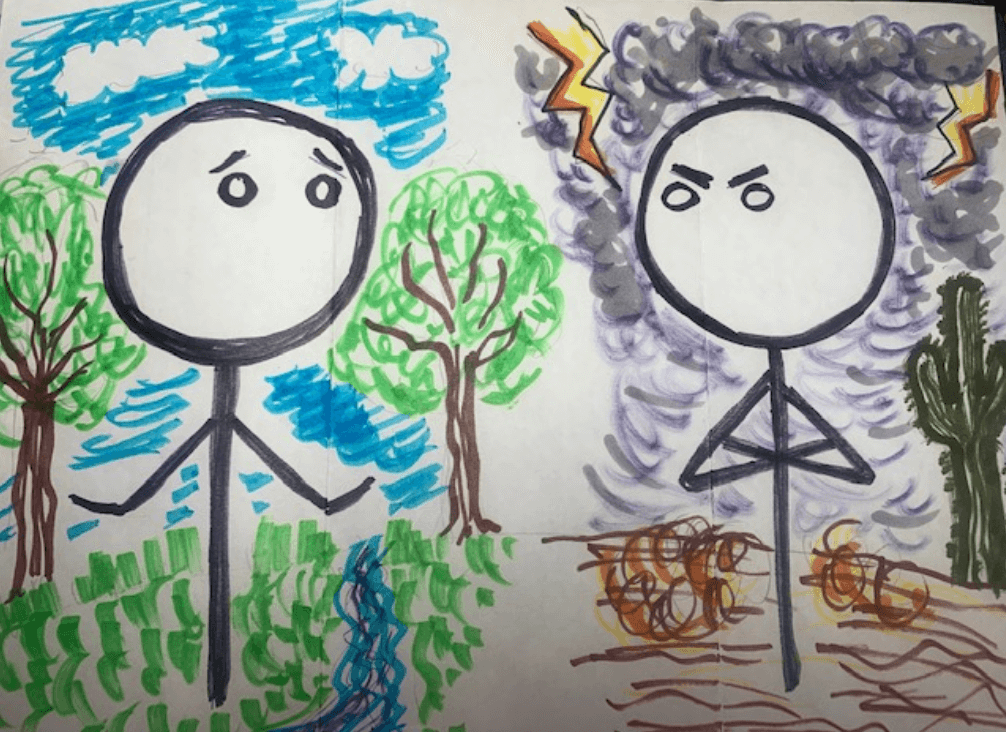
22nd Sunday Ordinary Time
Fr. Mark Gatto
Preached: August 28, 2022
What kind of church is needed today? What kind of priests are needed today? What kind of Catholics are needed today? All of these actually go together. The kind of church we want to be depends on the kind of priests we have and the kind of Catholics that we are.
The speech of Jesus to the Pharisees in the Gospel today could perhaps be something Jesus would say to us in the Catholic Church today. Jesus is speaking to the Pharisees, he sees their pride, their desire to be praised and acknowledged. They want to be put on pedestals and seen as superior to others. Jesus is clear about the importance of humility. A humble way of being in relation to others and to God.
We need a humble church, so we need humble priests, and we need humble Catholics. What will a humble church look like? What will humble priests and Catholics look like?
- Humility always means facing the truth about ourselves. Seeing ourselves honestly.
- Humility means that we see our own sins, our own weaknesses, before we look at those of others.
- Humility means understanding that there is one God, one Messiah, and it is not us. We are not the centre of the universe.
- Humility allows us to serve those that cannot give us anything in return, to serve those who seem unimportant to our world, to serve those who will not even thank us.
- Humility means that we do not see ourselves as superior to others.
- Humility means we do not need to win every debate or argument.
- Humility means we realize that we are not always right.
- Humility means we do not have all the answers.
- Humility means I only worry about how I am seen by God, I do not need recognition or praise from others for doing what is right.
We have a seminarian, William Meehan, with us this summer. As he continues his discernment and formation for the priesthood, there are some things that I hope for him. First, that he is a better priest than me!!! But, seriously, if he is to be a good and happy priest, he will need to avoid wanting to be put on a pedestal, not see himself as more important or holier than others, not think he is closer to God.
A priest is one willing to take a demotion, to get down low to the least within society, who is not looking for praise or honour or recognition. A priest is to be intimately united to Jesus because a priest is to serve the way Jesus did. My hope is that he will be a humble priest. So far, I am glad that I see this humility in William.
As we listen to Jesus speaking to the Pharisees in this Gospel, we should hear Jesus speaking to us as Catholics today.
We need to be a humble church today, so we need humble priests and we need humble Catholics. Sometimes people come to me in confession or spiritual direction and they say that they want to pray for humility. I always smile and warn them about praying for humility, because you might get it!
The challenges the church and priests face in society today due to scandals and criticisms just might be God’s way of forming a humbler church, humbler priests, humbler Catholics.
Just Like Us

22nd Sunday In Ordinary Time
Fr. Mark Gatto
Preached: September 1, 2019
I heard the Story of a priest who was visiting a L’Arche community in Europe. We will call him Fr. Frank. (L’Arche are communities where people with and without intellectual disabilities live, work, learn, and grow together). One of the founders was a Canadian, Jean Vanier. This priest who visited there was not a well man. He was recovering from a nervous breakdown and, although feeling stronger, had not yet regained full health.
On this particular day, the priest who was scheduled to celebrate Mass with the community did not show up. Fr. Frank offered to help. The people gratefully accepted and together they began to pray the Mass. But within a short time Fr. Frank became very nervous and lost all confidence. He stumbled and mumbled his way to the end of the Mass, feeling devastated and humiliated. How upset he was to have let the community down in this simple task! He wanted to run away and hide from the people who saw him in his weakness and helplessness.
After Mass the people came forward and hugged him. They were smiling and crying at the same time. They were saying to him that this was one of the most beautiful Masses they had ever been to! Fr. Frank could not understand their exuberant joy, as he was feeling the opposite.
Resisting their praise, he said, “How can you possibly describe this Mass as you have?” They replied, “But, Father, you are just like us. Thank you!”
These people, so often rejected by society, had recognized something of themselves in this priest as he celebrated the Eucharist. He truly represented Christ among them.
Who feels welcome in our parish, our church? The elderly, those coming on Darts and with walkers, children even when they are distracting, those struggling with mental illness, with depression, people finding life difficult now for various reasons?
Jesus tells the Pharisee that when he gives a banquet he should “invite the poor, the crippled, the lame, and the blind.” This is a symbol of the Kingdom of God, the God who receives all, who welcomes with special care those who seem unable to offer anything in return.
The humility that Jesus speaks about is not about putting myself down, but about raising up others. To be secure enough in myself that I do not need to put others down. Then I can be weak in front of others and others can be weak in front of me. Then we recognize each person as welcomed into the Kingdom of God. If God receives the other, how can we not receive them?
Our parish, our church, should be a community, a home where all feel welcomed, where all of us are able to be weak in front of each other. Where all are then lifted up in the grace and mercy of God.






